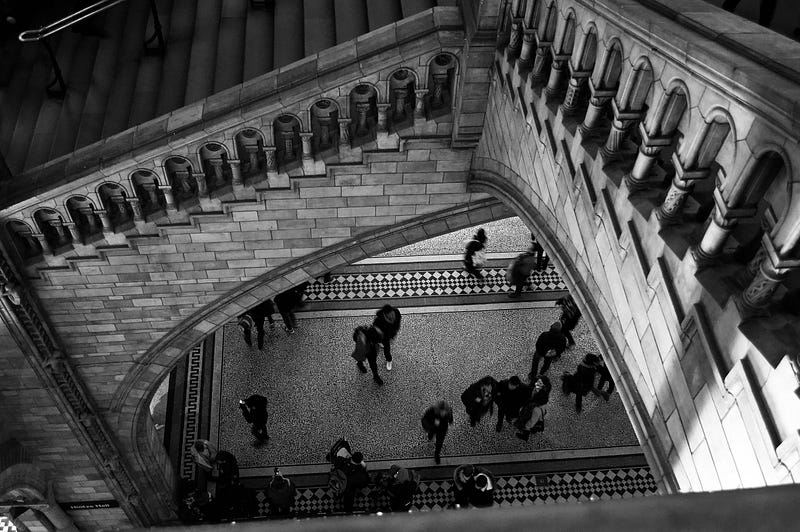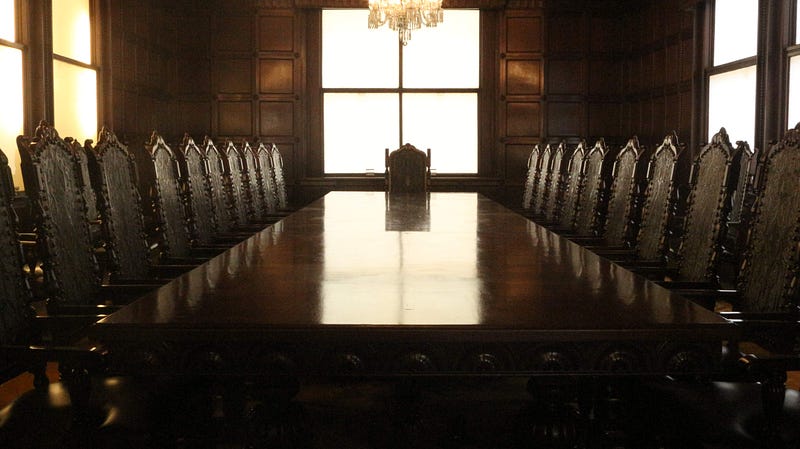A Discussion of Bourgeois Equality Chapter 13 “But Neither Can Poverty Be Overcome from the Right by Implanting Institutions”
OK, now McCloskey is coming for me!
The textbook I use for my intro macroeconomics class has a chapter on the source of economic growth, and the quality of the institutions is one of the ultimate sources.
Institutions, in this context, is a broad term that includes the laws and regulations of a society but also the morality, cultural norms and traditions.
I’ve even written about this idea more than a few times for Medium. Here’s a couple.
And now I am being told I am wrong? OK, I am listening. Where is my thinking wrong?
Necessary but not Sufficient
The story I have told is good institutions lead to the incentives to organize the means of production profitably.
I don’t think McCloskey disagrees that that can happen and has happened in places, but I think she would reword it as, “The story is good institutions can lead to the incentives to organize the means of production profitably, but there is no guarantee.”
It is a subtle difference, but now that I have read this chapter, I think she has a good point.
Without realizing the assumption built into my story, what I should really be saying is that while it does take good institutions to create the incentives for economic growth, just having good institutions does not mean it will.
The rule of law and the protection of private property are common examples of good institutions that lead to economic growth.
But as McCloskey points out, there have been many places and time periods with the rule of law and protection of private property, and yet the trade-tested betterment process of the Great Enrichment did not occur. She mentioned a few historical examples.
- The 13th century Pax Mongolica of Genghis Khan (p. 111)
- The Danish Jutland law code of 1241, which includes the motto, “With law will the land be built and with bad laws (the land is) destroyed.” (p. 111)
- Icelandic case law enforced by kin not kings showing you do not need a conqueror or ruler to enforce laws and protect property (p. 112)
Thus, I can teach that good laws and institutions are necessary for economic growth, but since these examples among others over time show that places have had these institutions without any sustained economic growth then that means their existence is not sufficient to cause economic growth.
As McCloskey sums it up (emphasis is mine),
To say that the Great Enrichment was caused by good property rights, and not (as it was) by the unprecedented explosion of betterment out of the unprecedented ideas of liberty and dignity for ordinary people, is like saying that a fire in the barn was ‘caused’ by the presence of the barn, not by little Joe smoking carelessly behind it. (p. 112)
Tautology
With that first criticism, I am already conceding that the story I tell has the hidden assumption that the existence of good institutions was sufficient. But she is not done with me yet. She has another point that is more subtle.
She says economists are not versed in the study of ethics and thus do not understand how ethics impact the story of economic growth.
I did this above when defining institutions as formal (laws and regulations) and informal (morality, cultural norms, and traditions).
She says by blending these two together, economists are committing the logical fallacy of a tautology, essentially saying “social change depends on society.” (p. 114)
In this case, when we say good formal and informal institutions create the incentives that lead to economic growth we are really saying economic growth happens when the conditions are correct for economic growth.
Using a more comfortable discussion technique for economists, she expresses her argument in an equation where the variable we are trying to explain is behavior. That is, what variables cause the behavior resulting in economic growth?
The typical economic concerns are what she calls the “P” variables: price, property, and prudence. She says there are two more variables to include.
The S variables (speech, stories, shame and the Sacred) and the L variables (the legal rules) combine with the P variables to determine the behavior of economic growth, or lack thereof, for the society.
Thus you can have all the laws in place to protect private property and allow production and trading, but that alone will not necessarily result in the Great Enrichment.
The message is the S and L variables are the conditions under which the P variables work, and the P variables modify the effects of the S and L variables. For example, the conservative argument that laws serve as education would connect L causally to S, by a separate equation. (p. 115)
What does that mean?
Essentially the economists’ muddled thinking, which has not even recognized the necessary and sufficient criticism noted above, also is not separating out these variables. By lumping them together to explain economic growth we are not allowing a fuller understanding of how they all affect each other as well as economic growth.
It is not enough to have the laws. There is also a relationship between the S and L variables we are not accounting for. In econometrics, this is multicollinearity.
When you ignore multicollinearity, it can lead you to accept your hypothesis when you shouldn’t. Essentially, you can conclude the P variables are a sufficient explanation for economic growth. At the very least, you are not able to understand the true contributions of these various factors and thus come to the wrong conclusions of what factors matter.
Conclusion
The chapter on the source of economic growth is coming up soon for me in my intro macroeconomics class this semester — I now realize I need to be more nuanced in my explanations.
As painful as it is to realize an error in your thinking, I am glad to have read this.
It is not that good institutions do not matter. You do need them to create the incentives that lead to economic growth.
What McCloskey has made me realize is the emphasis I need to add to the story is “the unprecedented ideas of liberty and dignity for ordinary people” that led to the Great Enrichment happening in the 19th century. That interaction of the S and L variables has been a missing ingredient in our story.
Even in other times with laws and private property and the ethics that supported trade, they did not have the explosive economic growth of the Great Enrichment because they had not adopted liberty and dignity for the bourgeois.
Reference: McCloskey, Deirdre Nansen, 2016. “But Neither Can Poverty Be Overcome from the Right by Implanting Institutions,” Chapter 13 of Bourgeois Equality, The University of Chicago Press.




